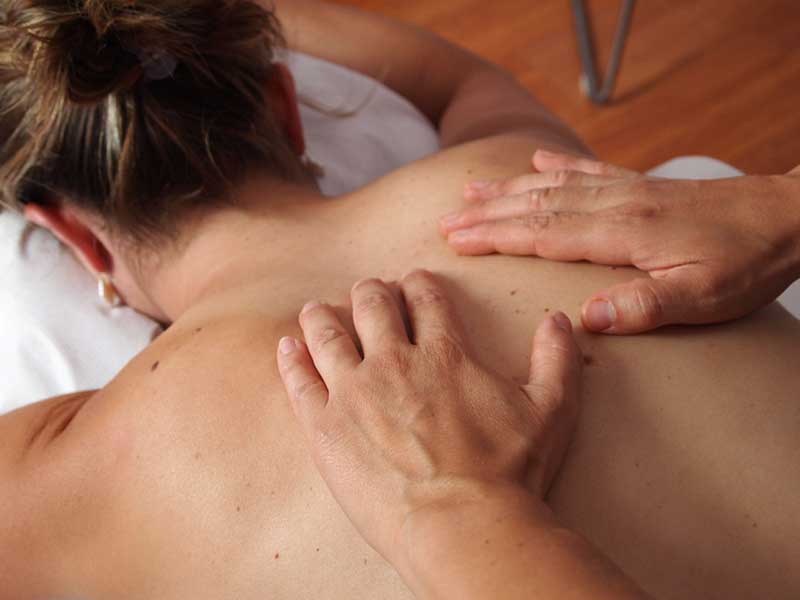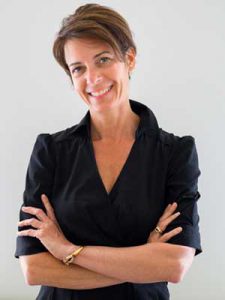
The treatment of people who have been touched by cancer is a big issue in spa and wellness.
Stories abound of people being turned away from spas and refused treatment after they reveal that they have, or have had, cancer. Julie Bach, founder of Wellness for Cancer, and chair of the Global Wellness Institute’s Wellness for Cancer Initiative, estimates that 90% of people who have been diagnosed with cancer at any point are turned away from spas.
A movement growing around cancer awareness
 Bach has been working hard to change that by providing training and education programs to raise cancer awareness in the spa and wellness industry, and there has been a lot of headway. Wellness for Cancer has trained staff at hundreds of hotel spas in 40 countries since 2012. The list includes Four Seasons, Como Shambhala, Six Senses, and AccorHotels.
Bach has been working hard to change that by providing training and education programs to raise cancer awareness in the spa and wellness industry, and there has been a lot of headway. Wellness for Cancer has trained staff at hundreds of hotel spas in 40 countries since 2012. The list includes Four Seasons, Como Shambhala, Six Senses, and AccorHotels.
One of Bach’s biggest supporters is Accor’s Director of Spa and Fitness, North and Central America, Daniel Poulin (who was also our cover star last month).
Poulin’s involvement in the cancer awareness movement has a personal foundation: two of his employees have their own crushing stories of being turned away from spas after revealing their past cancer diagnoses. Moved by their tales, Poulin, who has a master’s degree in nutrition with a specialization in breast cancer, decided to help change things from the inside, and is implementing a cancer awareness program at all of the 18 spas he oversees in North and Central America.
We spoke with both Bach and Poulin about why the problem is such a big one, what it means to raise cancer awareness, and how they’re doing their part to affect much needed, and some would say long overdue, change in the industry.
Why are people who have been touched by cancer being refused treatment at so many spas?
The concerns among spas are not unfounded. Dr. Susan Prockop, an oncologist at Memorial Sloan Kettering Cancer Center, explained to the New York Times recently that cancer patients do need to be careful with spa treatments. Issues like low blood circulation, or low red or white cell count may result in soft tissue damage during a massage, she said. She also told the Times that patients with lymphedema need special massage, and that cancer therapies may make patients sensitive to product ingredients.
Other reasons include lack of proper training, lack of proper insurance coverage and liability concerns, and a misunderstanding of the cancer process.
“It used to be taught that if you did a massage stroke, you can spread cancer, and that’s not true,” says Bach. “it’s just that people didn’t understand the disease process.”
How are Bach and Poulin addressing these issues?
The above issues are addressed in Wellness for Cancer’s training programs.
The program, says Bach, involves challenging our own beliefs and misconceptions about wellness and cancer.
She says, “Setting the appropriate stage with evidence is where we begin. The evidence collected by the medical community demonstrates that ‘patients’ seek massage for the same reasons as everyone else, namely: sleep, general aches, stress reduction and self-care. They are not coming to be treated for their cancer.”
Bach adds, “It is also very therapeutic for therapists to speak about cancer and their experiences with turning people away. The intangible aspects of working in this space cannot be emphasized enough.”
With regards to training, Bach explains, “Wellness for Cancer emphasizes critical thinking skills, from conducting a client consultation, to developing a personalized wellness treatment, to delivering that treatment with confidence. Our framework can be used for all clients, cancer or no cancer. You will not find a cancer specific massage on the menu as we understand that clients want choice and they want to feel normal and not have a cancer stamp on their forehead. We are here to change the stigma of cancer, and that starts with compassion.”
Poulin, who also oversees fitness programs, is working on the exercise aspect with Andrea Leonard, a leading authority in fitness and cancer. Leonard is a 35-year cancer survivor, President and Founder of the Cancer Exercise Training Institute, and PFP 2019 Personal Trainer of the Year. “She will be working with our trainers so that guests who have had, or who have, cancer that are using these facilities in our hotels, can exercise and receive personal training in the safest way.”
How should spas be looking at cancer awareness and what can the industry be doing?
Beyond the treatment and exercise room, Bach believes that companies should look at how cancer awareness fits with their overall wellness strategy.
“Look at your wellness strategy and ask why you want to do this. Instead of just hopping on a bandwagon and saying, we did this, check the box, ask how it ties into your overall strategy. Are you wanting to also volunteer in your community? Is this something that can help your employees? Maybe you just want to be prepared, which is also great.”
One of Poulin’s objectives is to create a welcoming space, and not turn away the people most in need of healing. “We need to get to a place where we can provide proper treatment to someone who is recovering from cancer, or maybe still going through treatment, and make them feel welcome and not rejected.”
He’s also extending the initiative into cancer prevention, as well as recovery. “Melanoma is on the rise in the US,” he says. “So, we are working with a company that has this really cool sunscreen application machine. I think we need to be asking, what else can we do? When we talk about cancer awareness, we’re talking about both recovery and prevention. Can we look at what more we can offer people trying to prevent or recover from cancer?”
What does the future hold?
As much headway as is being made, there’s still work to do. It’s estimated that one in two people will develop cancer in their lifetime. That’s a lot of people turned away from spas if things don’t change.
Bach has spearheaded a movement that should revolutionize the way cancer patients are treated by spas. Beyond her programs, she’s also developing a guide on how to leverage the spa for someone who has been touched by cancer.
And Poulin wants those who have been touched by cancer to feel welcome and cared for at his spas.
“We want to be able to let our guests know that when you come to an Accor property in North and Central America, and you are recovering from cancer, you will be welcome in our spa and receiving treatments that are suited and adapted to your situation.
“We want to be a company that cares about our guests, whoever they are, whatever conditions they have. We want to communicate that when they come to an Accor property there’s always someone to look after them.
“It’s just the right thing to do. That’s all.”
Spa Executive magazine is published by Book4Time, the world’s most innovative spa, salon, wellness, and activity management software. Learn more at Book4Time.com



